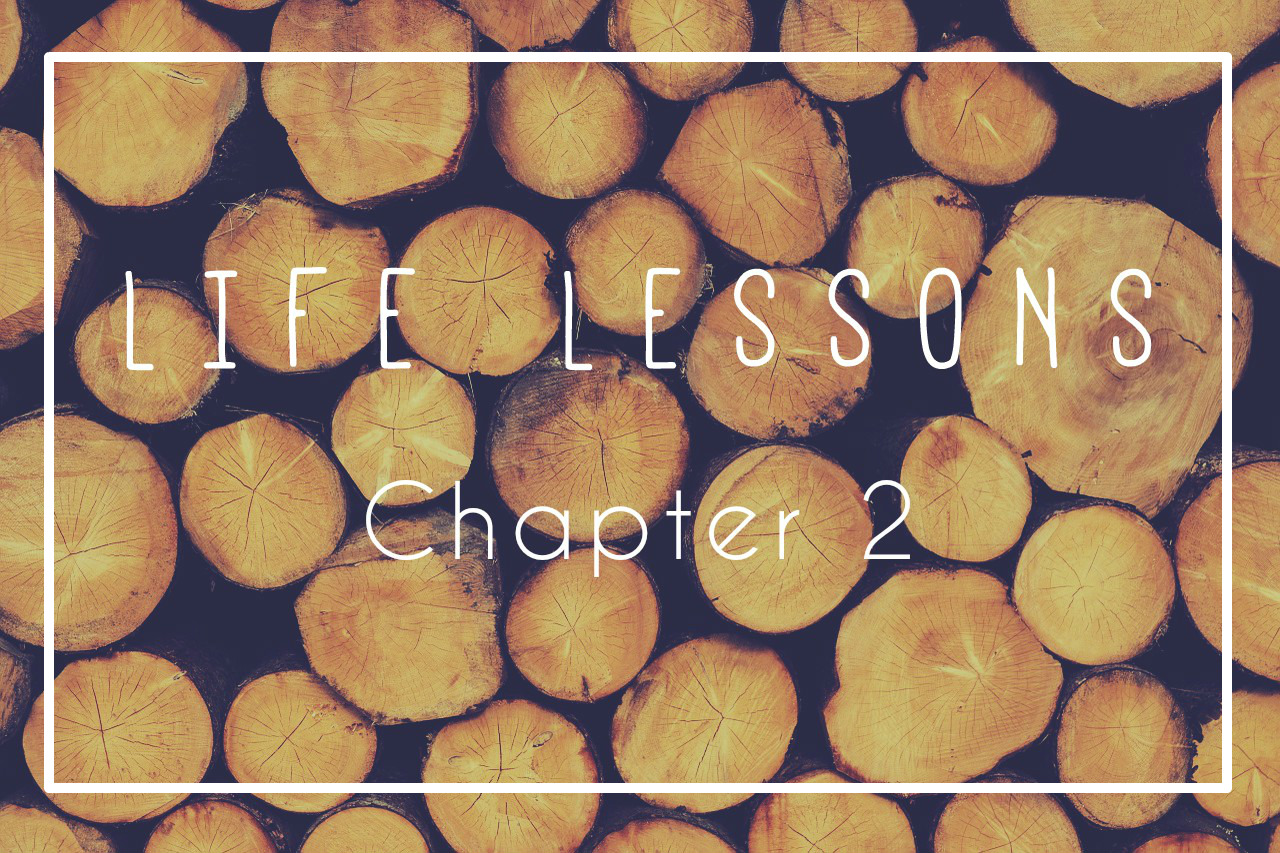Life Lessons, Chapter 2: New Beginnings

Everything that is good in our lives, everything that makes us us – be it friendships, relationships, children, our home or our career – everything has its origin in the fact that once, perhaps a long time ago, we were brave enough to try something new. New. What a positive word. What’s new with you? News is interesting; exciting. It is ‘something else’, something we haven’t seen or heard before. And it’s alluring.
True life is not static. It keeps moving forward into unknown territories. And it begins over and over again. Because our small and big new beginnings are nothing less than life itself: an endless quest to move forward.
Who’s afraid of change?
Life changes are attractive to many of us. But most of the time, they only peer around the corner and never come around completely. We think about them, we crave them but often we are intimidated by them. Leaving your job to set up your own company. Getting a mortgage to buy your own house. These are big steps. And the bigger the steps, the bigger the risk of failure.
Whether we deem change as good or bad depends on our character and attitude. Some people are very open-minded, fearlessly travelling the world, learning and constantly discovering new things. They deal with new technologies and developments and have a positive outlook on the future. Expectantly. They learn from the past and move on. Others long for the good old days, when everything used to be better. They don’t want to know new things because what they do not know is risky and potentially dangerous. Cautious natures want everything to remain as it is because everything is fine at the moment. Or maybe most of it is fine. They prefer to live with familiar habits, worries and problems, instead of risking new and unknown ones. They are satisfied, though not necessarily happy.
The fear of admitting failure is greater than longing
There are a few interesting theories which attempt to explain why we remain in our discontent rather than pack up and start over. According to the so-called "economic prospect theory", it is like purchased shares that have fallen in value and which we keep because we hope that they will eventually reach the value at which we bought them. The logic is: If I sell them now, then everything was in vain. I must first get back to zero, otherwise I'll make a loss. The phenomenon of "cognitive dissonance" explains how we deal with conflicting beliefs: I will stay in my loveless relationship, because leaving would mean admitting to me and others that if I go now, I would have had to go much earlier, which means I failed, so I'd rather stay. The “candyshop syndrome” is more positive: like a child which does not know what to buy in the candyshop, we are paralysed by the diversity of our possibilities. If I decide for liquorice, I decide against everything else. I will open one door, but at the same time close infinitely more. What I have will always be less than what I do not have. As a result we do not do anything. Instead we complain again and again that our life is unfulfilled.

Most of the time, we dream but we don't act.
Negative talk
We like to talk about how terrible everything is much more than about goals and solutions. We revel in negative emotions, define ourselves as victims of the circumstances, and always tell ourselves in this way: I am innocent in the fact that I have my problem and cannot solve it. And the reality is that we will not solve a problem for as long as the advantages of this problem prevail for us. It is convenient, it is familiar, it is learned, and we prefer ourselves with a known misfortune rather than exposing ourselves to the threat of an unknown happiness. There is a widely-known model that describes this condition: instead of changing something, we remain in our so-called comfort zone. This is the area where everything is so familiar that even the problems have something homely.
When we are forced to leave our comfort zone, we go through several stages before we settle into our “new” comfort zone. Suppose someone persuades you to take dancing lessons. In your comfort zone, you have never thought about dancing and the fact that you cannot dance. You were in the blissful state of "unconscious incompetence". You were not aware of your deficiency. As you enter the ballroom and you leave your comfort zone, you very quickly I realise: Wait, I cannot dance! Now you are moving from "unconscious incompetence" to the threatening state of "conscious incompetence". You become aware of the fact that you are not able to do what is expected of you. Dance. And you might get scared. But you plough through the lessons until one day you realise that you have mastered the art of dancing. You have now reached the state of "conscious competence". In this state you still have to focus on your steps; until you can do them without thinking. And then you have reached the end state of "unconscious competence".
Children react differently
This is how every new beginning works. And the bigger the change, the more strength and courage it requires. In the state of conscious incompetence, for example, we develop strong defensive strategies to keep the change away from us. First we say, the thing is stupid. Seriously, dancing is boring. If this is not enough for us to stop, we reject the one who wants to show us something new (the teacher is so incompetent). And if that has not worked, the strongest defense strategy kicks in – we criticise ourselves. I was born with two left feet!
It’s different in children. They have no inhibitions, they have no comfort zone; if they did, they would never learn to run or speak. Like adults, children react to something new with fear. But during our life the proportions shift: the older and more experienced we become, the more fear prevails over curiousity. Children who learn to walk are constantly on their feet; the desire for a new discovery is infinitely greater than the fear of hurting themselves or making themselves look ridiculous. They are not afraid of failure.

Taking leave of our old self is the first step to change
A matter of departure
By making ourselves comfortable in our comfort zone, we give up the opportunity to develop ourselves further. No matter in which direction, no matter with which exit: a new beginning always unfolds a very special force. A new start makes us more alert and flexible, the dangerous street in an unknown area makes us more conscious of our surroundings, we learn to assess opportunities and risks better. We learn, as psychology says, more "self-actuality." I determine what my reality is, not the circumstances, not others. And during transitioning phases in our llives, we are much more receptive to feelings of happiness than in times of standstill. Not to mention the fact that if the change is successful, we will have achieved something. But first we need to be brave enough to say goodbye to our old life.
A new beginning requires two triggers: longing and suffering. The longing, intense desire for a dream; a potential state of mind. And suffering from the current situation, the way it is right now. These two impulses must be very strong in order to defeat the fears that prevent us from starting over. In this sense, every change runs through the anthropoligical pattern of (1) symbolic death, (2) chaos, (3) rebirth. In the beginning, we have to let go of something: perhaps not necessarily of our old life, but at least a self-image which prevents us from breaking out.
A culture of success
The "symbolic death" is followed by chaos. Even the most carefully planned change of direction leads through a phase of disorientation, an interval in which we feel helpless and insecure and possibly full of remorse. Anyone starting something new will experience a "darkest hour" as psychologists say, an absolute depression full of fundamental doubts. In the course of this "darkest hour" we will lose some illusions and will have to give up self-delusions.
But how do we encounter the greatest fear of all, the fear of failure? Modern culture does not allow failure. Success is everything and failure is belittled. Looked down on. For the serenity of Samuel Beckett's maxim is totally alien to us: "Try again. Fail again. Fail better." Try again, fail again, fail better. This means that even if I do my best, I alone cannot determine the outcome. If I fail, it has nothing to do with me. We have to make this very clear to ourselves. Every failure is an experience to learn from or at least a good anecdote to share. But in order to break free from the modern stereotype, we need to be aware that without failure one cannot succeed.
A journey in stages
The first step is always most difficult one. But even after that, the path can be so long and troublesome, that it is best travelled in stages. And with intermediate targets. Reaching them feels good. Something has been achieved. And the small success gives us courage to take the next step. Of course there is some element of fear; there always will be. A new beginning is not a guarantee for a happy ending. As good as it may be planned, something can always go wrong. But it is like the saying: if you don’t try, you will never know.

Thank you for this :)
thanks for this post! inspiring... i love the candyshop concept, so true.. your post makes me think of the one i've just written yesterday on success and dreams, you can check it out on my blog. It seems like a collective theme we're working on.. keep on the good work, I follow you now! :)
Great post :)
Thank you @warrenvee! 🙂
No problem :)